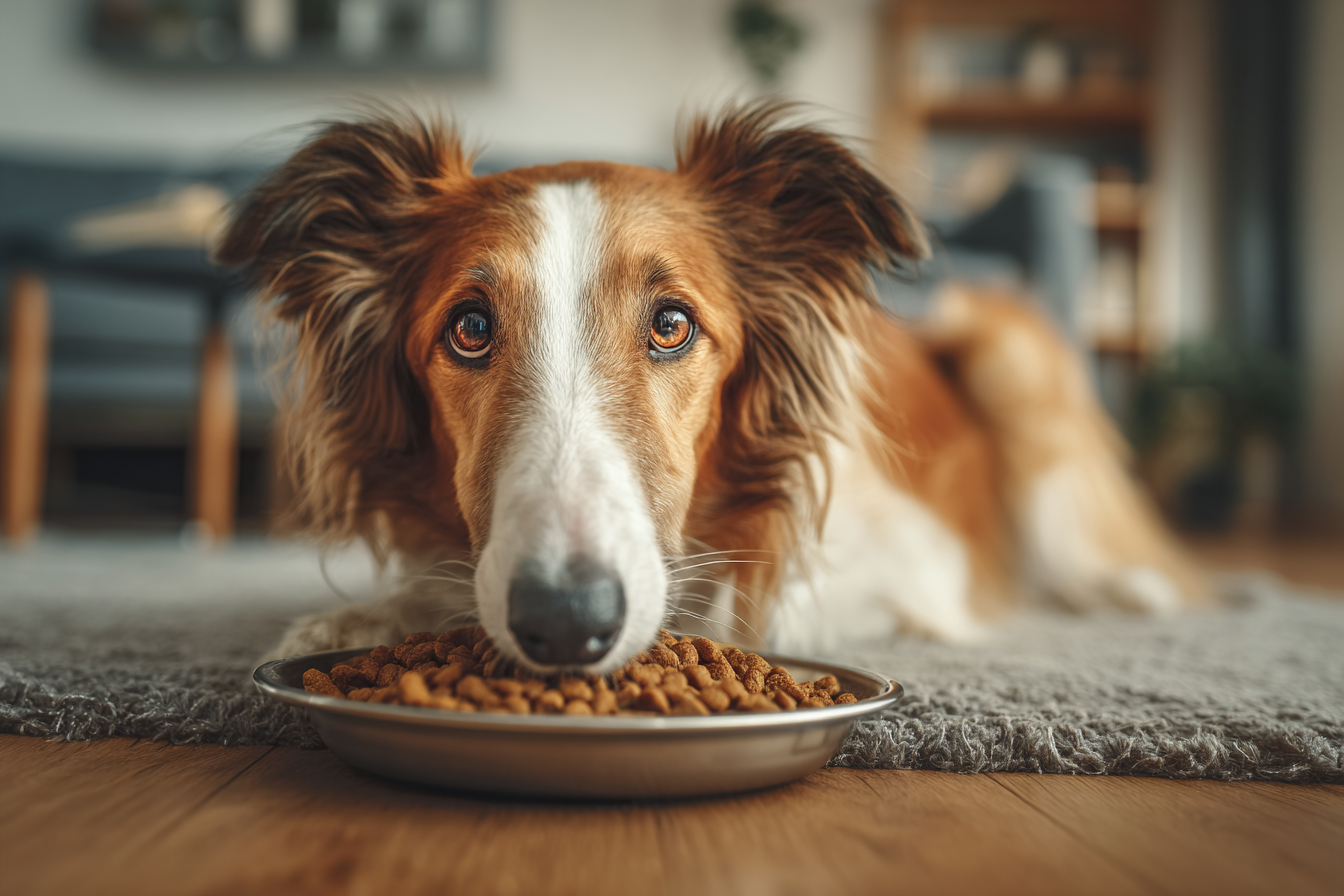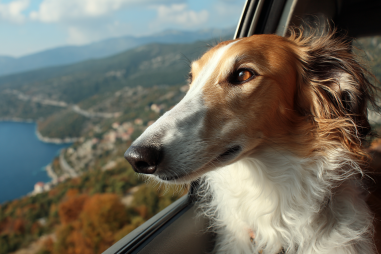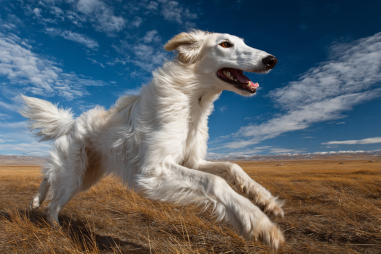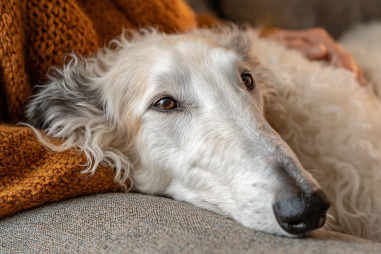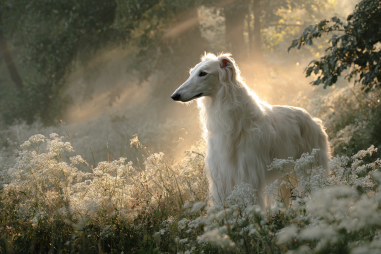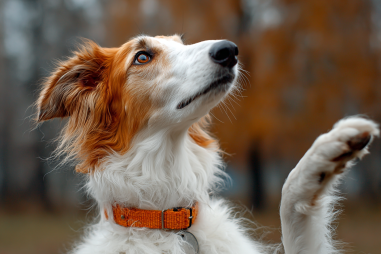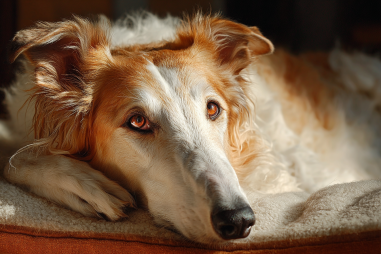Feeding a Borzoi properly is an essential part of ensuring this elegant and athletic breed stays healthy, happy, and full of energy. Known for their slender build and graceful movement, Borzois have unique nutritional needs that support their active lifestyle and distinctive physical traits. Whether you are a seasoned Borzoi owner or considering bringing one into your home, understanding how to nourish your companion appropriately will contribute to their overall well-being. In this guide, we’ll explore everything from their dietary requirements to the best foods for them, feeding schedules, supplements, and essentials like hydration.
Nutritional Needs of Borzoi Dogs
Borzoi dogs are sighthounds, originally bred for speed, endurance, and agility. Their lean bodies reflect a metabolism that thrives on a balanced diet designed to support muscle maintenance and energy without excess fat. Proteins play a critical role in their diet as they help in tissue repair and muscle development. A Borzoi’s diet needs to be rich in high-quality animal-based proteins such as chicken, fish, lamb, or beef.
Alongside proteins, fats are an important energy source for Borzois. Healthy fats, like omega-3 and omega-6 fatty acids, contribute to a glossy coat, healthy skin, and brain function. Carbohydrates should be included but in moderate amounts, focusing on easily digestible sources like sweet potatoes, brown rice, or barley to provide steady energy release without causing weight gain.
Equally important are vitamins and minerals, including calcium and phosphorus for bone health, antioxidants for immune support, and fiber for digestive health. Borzois can be prone to sensitive stomachs, so easily digestible ingredients and balanced micronutrients are key to maintaining digestive comfort and nutrient absorption.
Best Types of Dog Food for Borzoi
Choosing the right dog food for your Borzoi can feel overwhelming given the variety of options available. Generally, high-quality commercial dog foods formulated for large breeds are a good starting point. Look for products that list meat or fish as the first ingredient, avoid artificial additives, fillers, and excessive grains.
Here are some options to consider:
- Dry kibble: Convenient and helps with dental health, but ensure it contains high-grade proteins and fats suited for Borzoi energy needs.
- Wet food: Higher moisture content which can help with hydration but should be balanced with dry food to maintain dental care.
- Raw diet: Some owners prefer raw feeding to mimic the natural diet with fresh meats, bones, and organs, but it requires careful preparation to ensure nutritional completeness and avoid bacterial risks.
- Home-cooked meals: Preparing homemade food gives you control over ingredients, but consulting with a veterinary nutritionist is essential to avoid nutritional imbalances.
It’s also beneficial to select formulas that cater to large or sighthound breeds, as these take into account the specific protein, fat, and calorie needs of dogs like Borzois.
How Much and How Often to Feed
Borzoi puppies, adults, and seniors have different caloric demands based on their growth, activity level, and overall health. On average, adult Borzois require between 2,000 to 2,600 calories daily, but this can vary based on activity. More active dogs or those used in competitive sports may need additional calories and nutrients.
Feeding frequency is also important. Puppies generally need three to four smaller meals a day to support their rapid growth and steady energy levels. Adult Borzois usually do well with two meals per day to help maintain metabolic balance and prevent digestive issues like bloat, which can be a concern in deep-chested breeds.
Portion size should be adjusted according to your Borzoi’s weight and body condition. Monitoring their weight and muscle tone regularly will help you tweak food amounts as needed. Avoid overfeeding to prevent obesity and underfeeding to avoid loss of muscle mass and energy.
Supplements and Special Dietary Considerations
While a balanced diet often provides all necessary nutrients, some Borzois may benefit from additional supplements, particularly if they have specific health needs or dietary gaps.
- Glucosamine and chondroitin: Supports joint health, especially in active or older Borzois prone to arthritis or joint wear.
- Omega fatty acids: Supplements such as fish oil help maintain a healthy coat and reduce inflammation.
- Probiotics: Aid digestion and strengthen the immune system, beneficial if your Borzoi has a sensitive stomach or after antibiotic treatment.
- Vitamin E and C: Important antioxidants to promote overall health and combat oxidative stress.
Before adding supplements to your Borzoi’s diet, consult your veterinarian to ensure safety and appropriate dosage. Borzois with medical conditions such as heart disease, allergies, or digestive disorders may also require specialized diets or adjustments recommended by your vet.
Foods to Avoid
Keeping your Borzoi safe means knowing which foods can be harmful or toxic. Some commonly encountered foods that should never be fed to Borzoi dogs include:
- Chocolate: Contains theobromine, which is toxic to dogs and can cause serious health problems.
- Grapes and raisins: Known to cause kidney failure in dogs.
- Onions and garlic: Can damage red blood cells leading to anemia.
- Xylitol: A sugar substitute found in sugar-free gum and candies that can cause hypoglycemia and liver failure.
- Alcohol and caffeinated products: Both are highly toxic and potentially fatal.
- Excessive fatty or salty foods: Can upset digestion and contribute to pancreatitis or hypertension.
Also, avoid feeding your Borzoi large quantities of bones or rawhide that could splinter and cause choking or intestinal blockages. Always supervise your dog during mealtime and store human foods safely out of their reach.
Hydration and Its Importance
Hydration is just as important as proper nutrition in maintaining your Borzoi’s health. These slender dogs are active and have a high metabolism, making regular access to fresh water critical. Proper hydration supports digestion, temperature regulation, joint lubrication, and overall cellular functions.
Always provide clean, fresh water and encourage your Borzoi to drink throughout the day. During exercise, hot weather, or times of illness, monitor water intake closely. If your Borzoi seems reluctant to drink, try offering water at room temperature or adding a splash of low-sodium broth to entice them.
In some cases, especially for athletic dogs, electrolyte supplements may be beneficial to replace lost minerals after intense activity or heat exposure, but these should be used under veterinary guidance.
Feeding your Borzoi a well-balanced, nutrient-rich diet tailored to their unique needs helps them maintain their graceful appearance and vigor. By paying close attention to food quality, portion size, and feeding routine, alongside proper hydration and supplementation when needed, you are providing the foundation for a happy and healthy life. With these nutrition guidelines in hand, you can confidently nourish your beautiful companion to reach their fullest potential.

